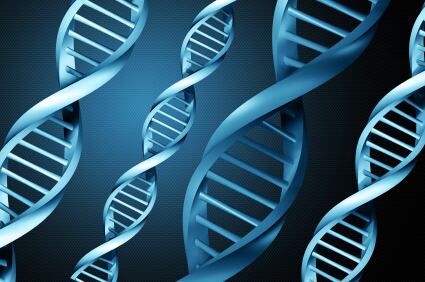Data published in European Journal of Nutritionand Food Research International indicate that regular consumption of a market blend or a ‘special’ coffee rich in green coffee bean compounds and roast products was associated with protection against DNA damage, while the ‘special’ coffee had greater effects on body fat, and energy and nutrient intakes.
“The overall results of this study thus indicate that regular coffee consumption is associated with beneficial health effects, including maintenance of DNA integrity, regulation of satiety, reductions of energy intake and increase of body fat catabolism,” wrote researchers from the Technical University of Kaiserslautern and the University of Vienna.
Coffee and its constituents
The beverage, and its constituent ingredients, has come under increasing study with research linking it to reduced risk of diabetes, and improved liver health.
Coffee, one of the world's largest traded commodities produced in more than 60 countries and generating more than $70bn in retail sales a year, continues to spawn research and interest.
Indeed, a report by Mario Ferruzzi from Purdue University in Physiology & Behavior (doi: 10.1016/j.physbeh.2010.01.035) stated that coffee is one of the richest sources of polyphenols in the Western diet, with one cup of the stuff providing 350 milligrams of phenolics. Of these, the most abundant compounds in coffee are chlorogenic acids, making up to 12% of the green coffee bean. The most abundant of these compounds is caffeic acid.
The new studies looked at a ‘special’ coffee blend containing roast coffee products and green coffee bean compounds. According to data in the research paper, the coffee was rich in chlorogenic acids and N-methylpyridinium (NMP), a compound formed during roasting.
Study details

For the study in the European Journal of Nutrition, researchers led by Tamara Bakuradze compared the special coffee with water in 84 healthy men. After four weeks of consuming the special coffee, the researchers found that the level of spontaneous DNA strand breaks in the water group increased slightly whereas it decreased in the coffee group. The difference between the two groups was 27%, they said.
The study in Food Research International also included 84 healthy subjects and the participants were randomly assigned to four weeks of the special coffee or a regular market blend. Both groups displayed reductions in levels of body fat, with the decreased reportedly more pronounced in the special blend group (a reduction of 1.7 kg in the special group, compared with an average loss of 1.15 kg in the standard coffee group). Again, DNA-protective effects were observed in both groups.
IP
The studies are a continuation of earlier work by the same group of researchers and hints at a long-term R&D project from German coffee company Tchibo, which co-funded the new studies.
Indeed, the company has a patent for this ‘special’ coffee blend. US Patent number 8,524,307 (granted September 3, 2013) concerns “Healthy coffee and methods of its production”.
“The present invention relates to a method for producing a coffee blend and the coffee blend obtained by this method, wherein the coffee blend is characterized in that a coffee drink brewed from said coffee blend contains high amounts of chlorogenic acids (CGA) and N-methylpyridinium cations (NMP) and optionally, low amounts of carboxylic acid-5-hydroxytryptamides (C5-HT), has a superior antioxidative activity,” states the patent.
Sources: European Journal of Nutrition
Published online ahead of print, doi: 10.1007/s00394-014-0696-x
“Consumption of a dark roast coffee decreases the level of spontaneous DNA strand breaks: a randomized controlled trial”
Authors: T. Bakuradze, R. Lang, T. Hofmann, G. Eisenbrand, D. Schipp, J. Galan, E. Richling
Published online ahead of print, doi: 10.1016/j.foodres.2014.05.032
“Four-week coffee consumption affects energy intake, satiety regulation, body fat, and protects DNA integrity”
Authors: T. Bakuradze, G.A. Montoya Parra, A. Riedel, V. Somoza, et al.

